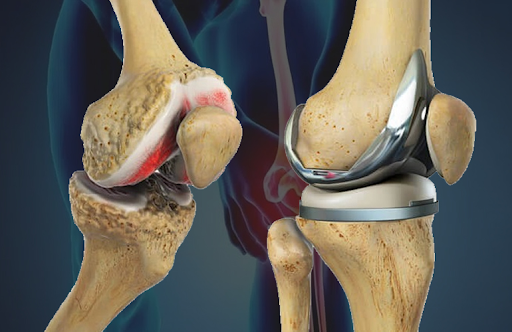Understanding the Types of Blood Cancer: Key Symptoms and Early Detection
Blood cancer is a group of conditions that affect the production and function of blood cells. It originates in the bone marrow, where blood cells are produced, and can disrupt the body’s ability to function properly. Recognising the types of blood cancer, understanding their symptoms, and prioritising early detection can play a crucial role in managing this disease effectively.
The Three Types of Blood Cancer
Blood cancer is divided into three primary types: leukaemia, lymphoma, and myeloma. Each has unique characteristics and affects the body differently.
- Leukaemia
Leukaemia begins in the blood and bone marrow, resulting in the abnormal production of white blood cells. These abnormal cells hinder the body’s ability to fight infections, as they crowd out healthy blood cells. Symptoms of leukaemia include:
- Persistent fatigue
- Frequent infections
- Easy bruising or prolonged bleeding after minor injuries.
Leukaemia can be acute (fast-growing) or chronic (slow-growing), and early diagnosis is key to managing the disease.
- Lymphoma
Lymphoma affects the lymphatic system, which is vital for fighting infections and removing waste from the body. It causes lymphocytes (a type of white blood cell) to grow uncontrollably, forming tumours in the lymph nodes or other organs. Common symptoms include:
- Swollen lymph nodes in the neck, armpits, or groin
- Night sweats
- Persistent fever
Lymphoma is categorised into Hodgkin’s lymphoma and non-Hodgkin’s lymphoma, with each type requiring specific treatments.
- Myeloma
Myeloma impacts plasma cells, which are responsible for producing antibodies that fight infections. When affected by cancer, these cells multiply abnormally, weakening the immune system and causing other complications. Symptoms of myeloma may include:
- Bone pain, especially in the spine or ribs
- Repeated infections
- Kidney-related issues, such as frequent urination or swelling in the legs
Understanding these types of blood cancer allows individuals to identify symptoms early and seek timely medical advice.
Also Read Here :
Common Symptoms to Look For
Although the symptoms of blood cancer vary depending on its type, there are some general warning signs to watch for:
- Fatigue
Persistent exhaustion, even after adequate sleep, could indicate abnormal blood cell activity. - Frequent Infections
Blood cancers weaken the immune system, making the body prone to recurring infections. - Unexplained Weight Loss
A sudden, significant loss of weight without any apparent reason can be a red flag. - Unusual Bleeding or Bruising
Easy bruising or bleeding for a longer duration after small injuries may point to issues with blood clotting. - Bone or Joint Pain
Pain, particularly in the back, hips, or ribs, is a common symptom of myeloma.
If you notice these symptoms persisting for weeks, consulting a doctor is essential.
The Importance of Early Detection
Early detection of blood cancer improves the chances of successful treatment. Regular health check-ups, blood tests, and being alert to unusual changes in your body are key steps in diagnosing the disease early.
Tests commonly used to detect blood cancer include:
- Complete Blood Count (CBC): Measures the levels of red blood cells, white blood cells, and platelets to identify abnormalities.
- Bone Marrow Tests: Used to examine the bone marrow for cancerous cells.
- Imaging Tests: Scans like X-rays or MRIs help detect tumours or abnormalities in the lymph nodes or bones.
Timely diagnosis enables healthcare providers to design a treatment plan tailored to the individual’s needs.
Tips for Cancer Prevention
While not all types of blood cancer are preventable, maintaining a healthy lifestyle can lower the risk of developing cancer. Here are some cancer prevention strategies:
- Adopt a Balanced Diet
Include plenty of fruits, vegetables, whole grains, and lean protein in your meals. A nutrient-rich diet supports the immune system and overall health. - Avoid Tobacco
Smoking and other tobacco products are linked to many types of cancer, including those affecting the blood. - Limit Alcohol Consumption
Drinking in moderation helps reduce the strain on your body and lowers cancer risk. - Exercise Regularly
Staying active not only improves overall well-being but also reduces the risk of various health issues. - Minimise Chemical Exposure
Avoid prolonged exposure to harmful chemicals or pollutants, which may increase the risk of cancer.
These steps can contribute to better health and create a strong foundation for disease prevention.
The Role of Awareness and Support
Awareness plays a significant role in combating blood cancer. Educating yourself and others about the symptoms and the importance of early detection can encourage timely medical intervention. Support groups and professional counselling can provide much-needed emotional assistance to patients and their families.
Conclusion
By understanding the types of blood cancer, recognising symptoms, and adopting cancer prevention strategies, individuals can take proactive steps towards better health. Regular check-ups and staying informed are crucial in the fight against blood cancer. Early detection and healthy habits can make a significant difference in outcomes, empowering individuals to live healthier lives.







